KATHMANDU: Jigme Singhe Palbar Bista, now a successor of the rituals carried out by the Mustangi King, is living an ordinary life as a citizen in Bouddha Kathmandu. His ancestors entertained the ‘King’ title until 2008. Concerned about the preservation of cultural and historical heritages his ancestors had managed to safeguard for centuries, Bista, though now without formal title of the king, still entertains love and respect from the citizens of Lo-Manthang. He still attends many cultural ceremonies taking place in the former kingdom, now known as the district beyond Himalaya.
Choosing an apolitical issue, this time Khabarhub approached this ‘would be successor’ of Gyalpo dynasty that ruled in Mustang since 1380 and was permitted to entertain the role as king even after Prithvi Narayan Shah’s annexation of it in Nepal. The title was removed only in 2008. Bista who is executing his obligations towards society by running various activities under Lo Gyalpo Jigme Foundation is committed to preserving the Chhortens, Gumbas and historical walls of Lo-Manthang.
Here are the excerpts of the interview with him:
As a son of Mustangi King, what differences have you felt in the social, cultural and historical trends as they are going on these days?
I have not felt big differences. The government has removed our title, but the locals of our land still love and respect us. The contribution of my ancestors, my late father and mother or late King and Queen of Mustang is still paying, I feel loved and am expected in various ceremonies conducted by the people of our parts. Culturally, they include us and expect us to be with them. I don’t feel much difference even now.
Putting politics aside, you have a distinct identity we feel. What’s your role in this beautiful part of the country also known as the district beyond the Himalayas?
King Prithvi Narayan Shah, the unifier of modern Nepal, called Nepal a garden of four castes and thirty-six sub-castes, referring to the multilingual and multicultural components of the country. My father had paid attention to preserve, promote and publish the glorious culture and monuments of our part of the country. There was a time when our cultural monuments like Gumbas, Chhortens, historical walls, etc. were in a pitiable condition, at the stake of getting lost forever. My late father was very worried about the preservation of cultural and historical monuments.
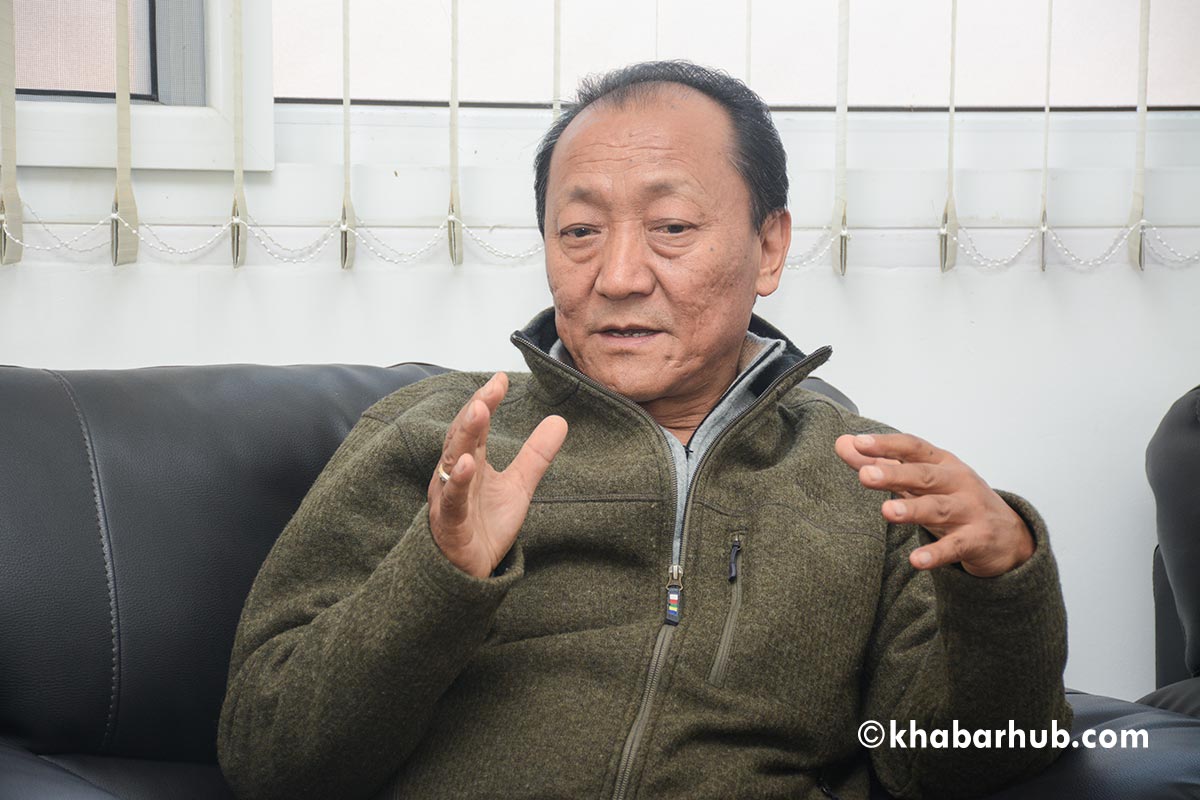
Luckily, when tourism was opened in 1982, then the place got special attention. My father shared his concern with the prospective donors who had visited the part. My father met Richard Bloom, the chairperson of the American Himalayan Foundation and shared that he was quite upset not to be able to preserve the historical and cultural monuments.
Moved by my father’s remarks, Bloom agreed to help in the renovation of ancient Gumba, Chhortens and walls. Not only this, respecting the king’s feelings towards his subject, he agreed to help in the health and education sector.
I have tried to work for the continuation of the works initiated by my father. I have been working through a non-profit organization Lo Gyalpo Jigme Foundation, established in the memory of Late King. We have been helping especially in education. There we have 14 daycare centers (Pre-school), there is a Children’s Home in Jomsom where the children of poor economic backgrounds are provided free education. The children’s home has 60 students now.
In addition to it my role includes participating in cultural festivals like Tiji, Yartung. After the recent political changes, I tried not to show myself in such cultural shows, but the locals wanted me to join it; so I have been attending these festivals.
Despite the political changes all around, what can be the main reason behind people’s respect for you and their expectations from you?
It’s all especially due to the role my father and mother i.e. the former King and Queen played for their people. I have not done much remarkable to them yet. The role they played when they were active has been rewarding me in the form of people’s love.
How is the lifestyle of the people? Has it experienced a substantive change in the last few decades?
The panoramic beauty of the Himalayas lying in the south is really enticing to the visitors. The Himalayas are said to be in the east of Nepal, but from our part of the country, it lies in the South; which has made the part get the name of a country lying beyond the Himalayas. The glorious culture and history the chhortens and Gumbas here bear is almost beyond words.
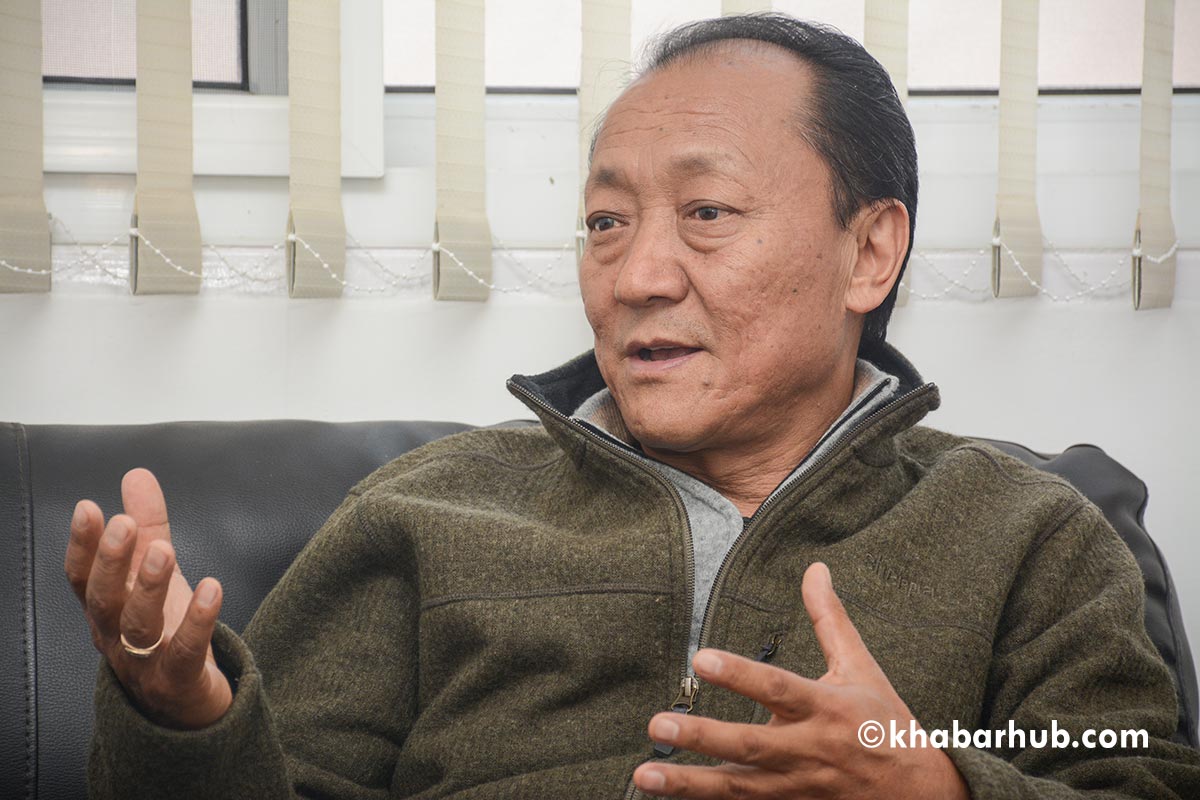
Yet, this land beyond the Himalayas is still in discarded situations for various reasons. The people here are subject to various types of difficulties. Previously, they used to make their living in agriculture. They used to have good earning from animal rearing.
Then, there was no problem with winter pastureland. Our people could take their sheep and yaks to our neighboring sides of Tibet for grazing. China had been cooperating that way.
Later when the treaty expired nearly 30 years before and no new treaty is made in that direction. People have discarded their profession due to the lack of grazing fields. The number of yaks and sheep declined incredibly. Distressed, people tried to seek their livelihood in agriculture despite adverse weather. Life became difficult.
What about the impacts of tourism? Has it affected affirmatively?
Fortunately, after the place was opened to foreigners in 1982, life changed positively. Now, people are attracted to the tourism sector. The unique culture, tradition and lifestyle have been calling the tourists every year.
More than 4500 foreigners visit the area every year. Though they have to pay relatively high royalty, they are satisfied. For the continuation and improvisation of those areas, the government has to pay special attention. There are still many things waiting for government touch.
All the hotels operating there are the ones run in individual efforts, they fail to provide the quality service they want to provide. Provided the government helps the hoteliers are trusted with ‘soft-loans’, they can provide better quality and satisfy the visitors better. The guests are ready to pay for quality service; we should provide them the one they seek provided it doesn’t contradict our culture.
The more they spend, the better the locals can benefit as well. I wish the government would facilitate this direction.
There have been scores of Ministers coming into contact. How do they treat you when they come?
Yes, they come into contact quite frequently. The meeting has become more intense since last year, the time they need further details on how the border used to be regulated and how it can be taken ahead etc.
Perhaps, they are quite aware of the love the people show towards us. They want to meet me and talk about the culture and traditions here. They treat me nicely.
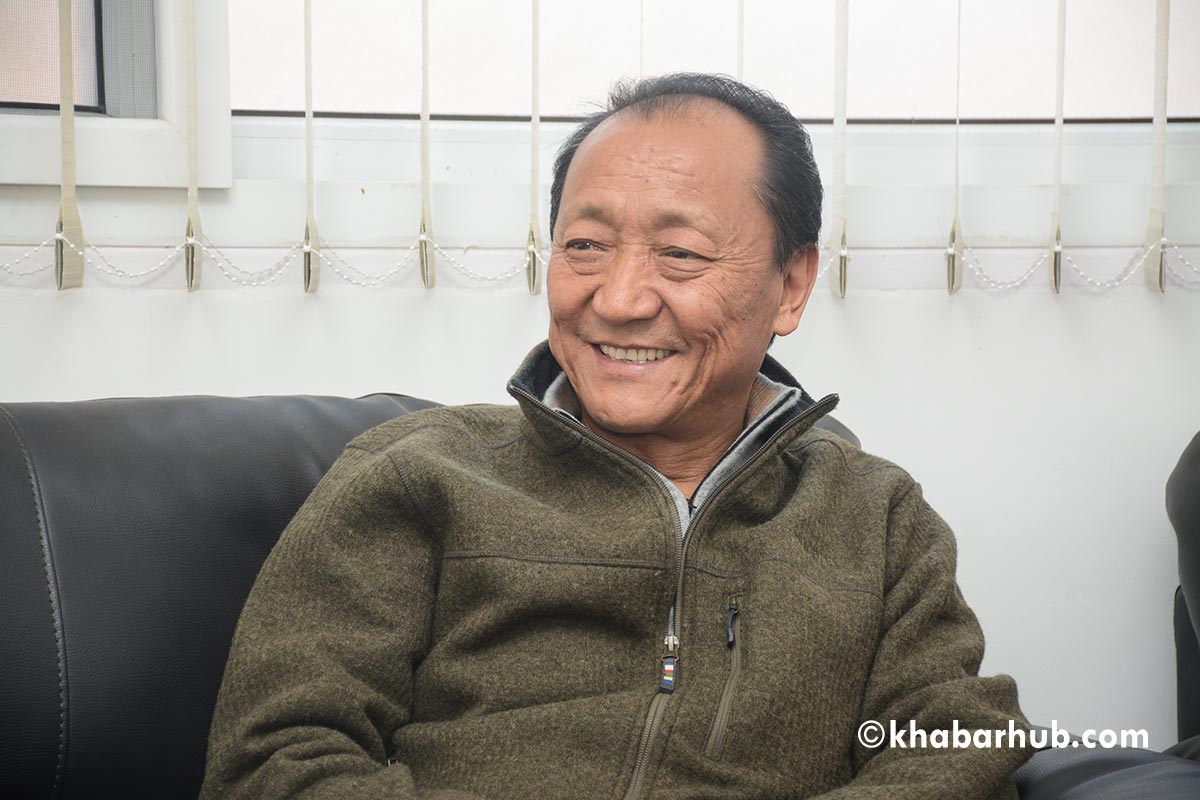
Now, under democracy, there are elections every 5 years. Do the political parties come to seek favor for them?
Yes, they come but I don’t favor one over the other. Whatever political party they may belong, they respect me; hence I too don’t have any inclination towards any party. All people are equally dear to me. I ask them to choose the one they like their best. I play a neutral role in elections.
How is your life going on? What do you do here in Kathmandu?
I have opened a guest house in Lomanthang. I have a non-profit organization through that as well I am running some projects. The durbars made 700 years before are old and waiting for renovation. The durbars were made of mud. I once requested the department of Archeology for the renovation works, but they did not show much interest in it, then I approached the ministry. When all efforts did not bear fruit, finally I decided to try on my own.
Although there are many palaces, two of them one at Charang and another at Lomanthang have many things of cultural importance. My dream is to develop the palace at Charang into a Museum, I have not been able to do it. I want it to be preserved and made a source of knowledge for future generations interested in culture and tradition. I wish to convert the palace in Lomanthang into a living museum, I will also live in the palace.
I want to make some guest rooms and live there. I have not been able to do it so far.
The country became a republic. Your title is seized. How do you feel about?
I don’t find a big difference. The people in our part still love me a lot. The leaders also come and we meet and talk about various things related to the betterment of the land. They love us. Although there is nothing about us in the constitution they regard us high. Actually, I am living like an ordinary citizen. The king of Mustang was merely an honorary title quite long. But, I feel, the monarchy of Nepal should have been made a constitutional monarchy and should have been continued. I feel sad that we could not retain monarchy as a constitutional monarchy in Nepal. It was like our guardian. Now, I feel sans guardian with no monarchy in Nepal.
Who else is in the family now?
I have my mother, three children and my wife in the family now. My daughter, who is the middle child in the family, is doing MBBS in the USA. My eldest son has completed a Master’s Degree in Business and is looking after my guest house. My youngest son is a Lama. He has studied Buddhist philosophy. He is studying in India.
Anything else as a comment in the situation as it is going on?
I live in my residence in Bouddha, Kathmandu. Nothing much to comment about other things. Some errors are there seeking correction, but I hope they will make corrections on them once they see them.


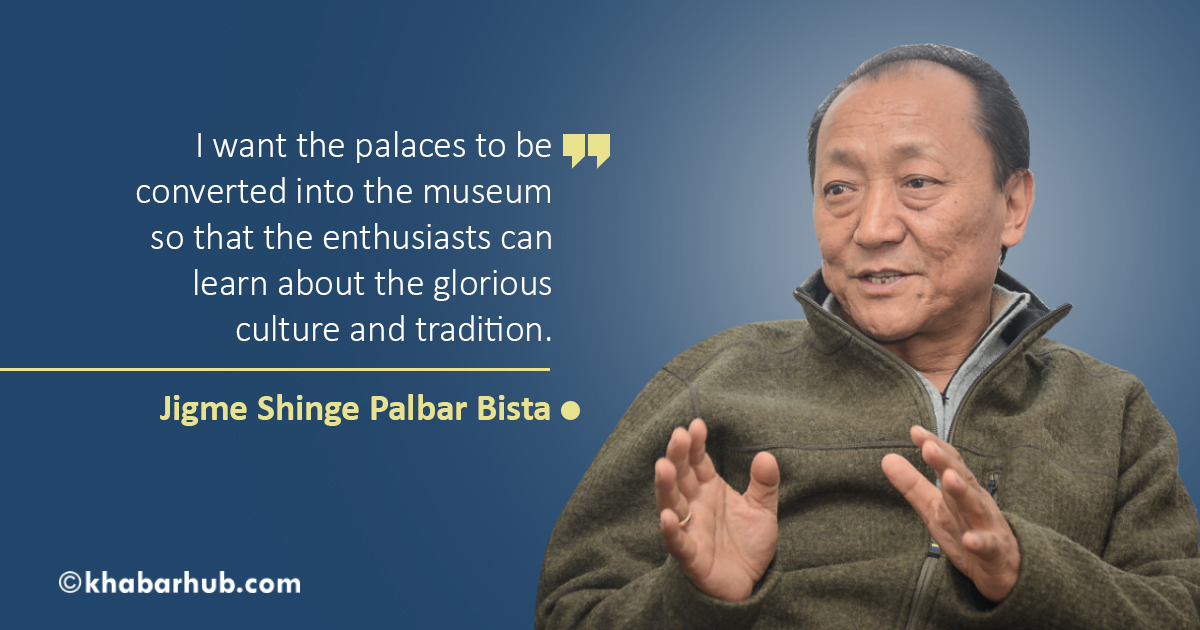



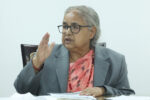


Comment